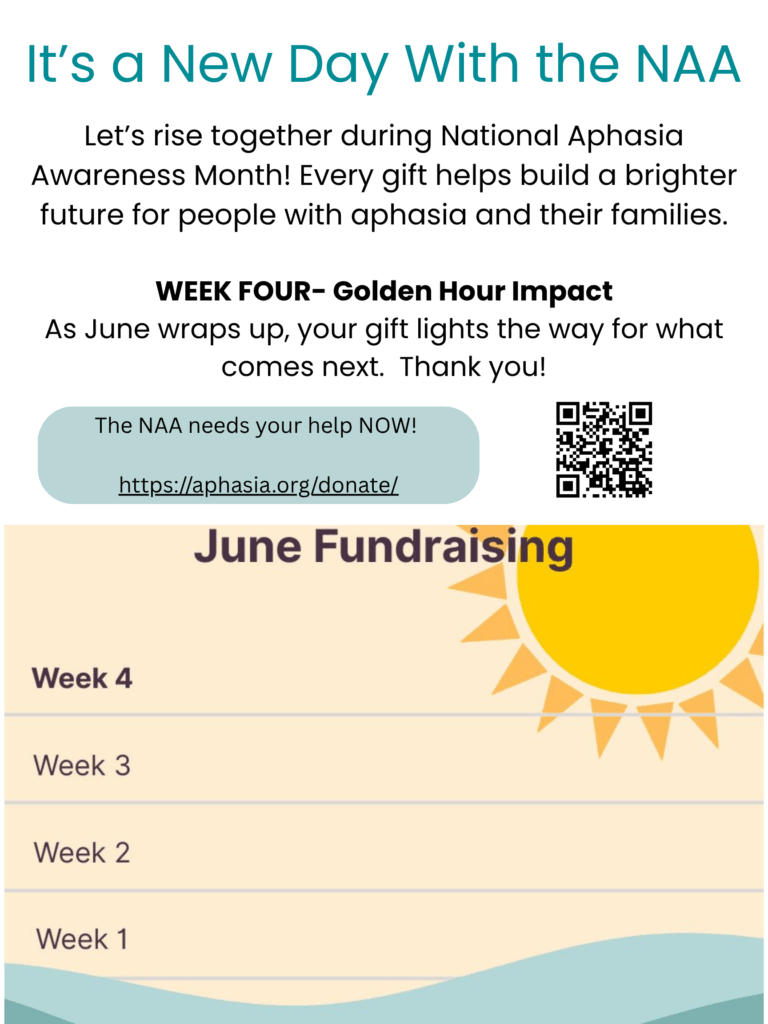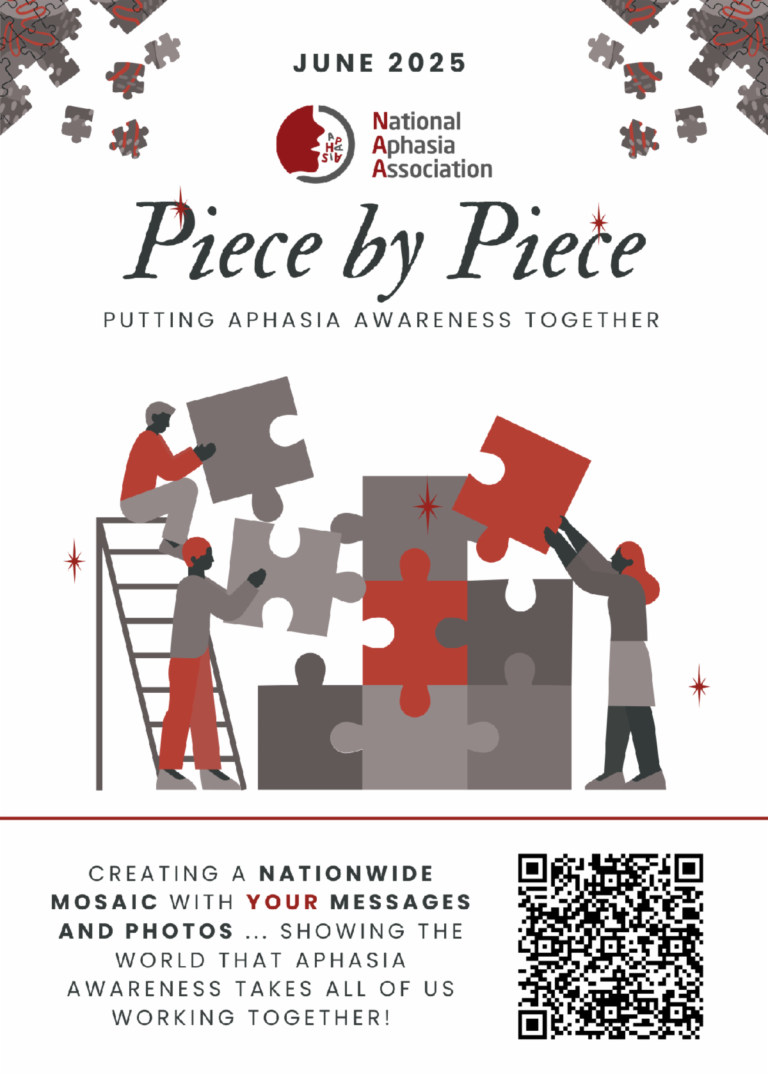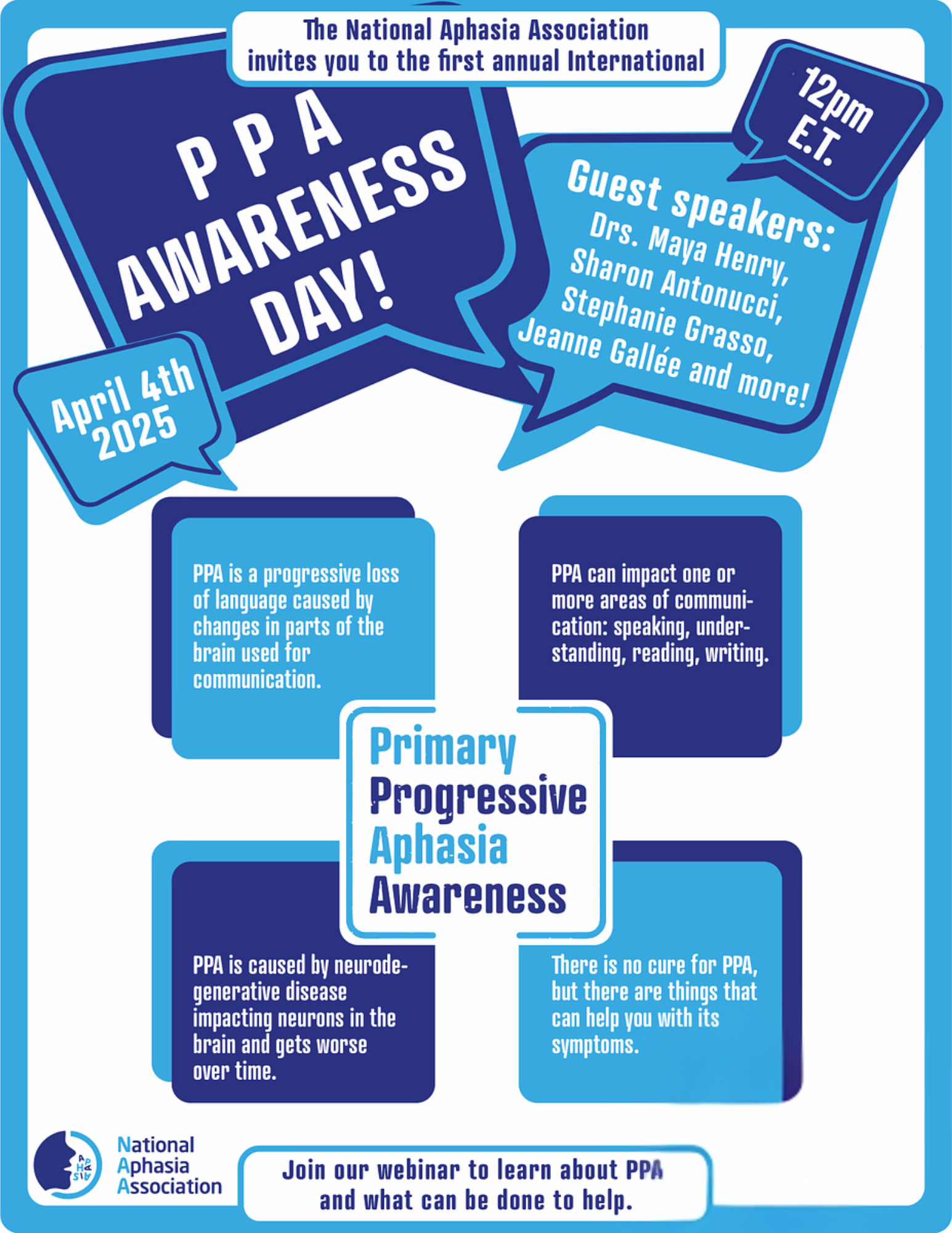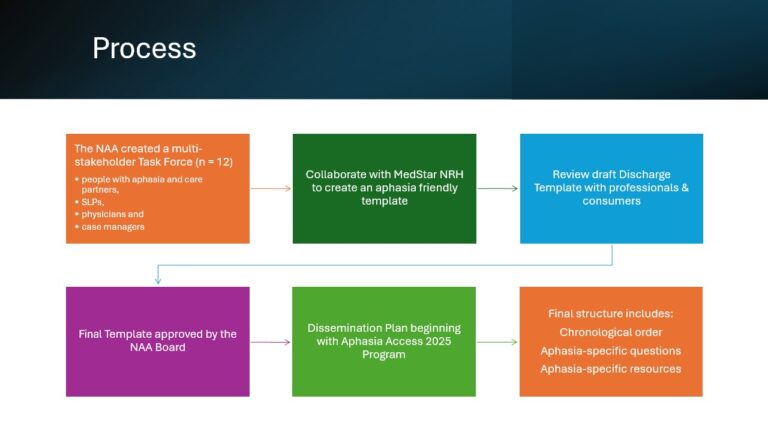-
A New Day with the NAA
June is Aphasia Awareness Month around the country and around the world! It is an opportunity for the NAA to educate the general public about aphasia… what it is, and
-
Aphasia & Mental Health
Published 10/17/23; Rebecca Hunting Pompon, rhp@udel.edu, with updated edits 5/29/25 Living with aphasia can be stressful. It is frustrating and stressful to struggle to find the right words in
-
Aphasia Awareness Month 2025
June is National Aphasia Awareness Month, and the National Aphasia Association is excited to announce our initiatives for this year! From puzzle-themed projects to community/library showcases , there’s something for
-
The NAA hosted the first annual International PPA Awareness Day
PPA Awareness Day was the start of something GREAT! The NAA hosted the first annual International PPA Awareness Day! The one-hour webinar allowed people with PPA to share their experience through
-
2025 NAA Grants: Expanding Our Impact on Aphasia Research
We’re proud to announce our largest grant cycle ever-$30,000 in funding to support cutting-edge research in aphasia. This year’s grant cycle includes: Two Barbara Martin Aphasia Research Grants, honoring the
-
A Discharge Checklist: Helping Persons with Aphasia at Hospital Discharge
Help people with aphasia at hospital discharge People with aphasia and their families often have concerns and complaints about the lack of information they received during their hospital stay and
-
Announcing the Davetrina Seles Gadson Health Equity Grant Program
The National Aphasia Association (NAA) is proud to honor the legacy of Dr. Davetrina Seles Gadson, a remarkable leader in speech-language pathology and health equity. Her groundbreaking work advanced our
-
Night of Aphasia Arts 2025
The National Aphasia Association (NAA) hosted our 3rd Annual Night of Aphasia Arts event on March 27, 2025. Audience members were awe inspired and impressed at the creative expressions of those
-
Celebrating Dedication and Welcoming New Leadership at the NAA
As we embark on a new chapter at the National Aphasia Association, we want to take a moment to express our deepest gratitude to the remarkable individuals who have dedicated
-
Lift Every Voice: Countdown to the Holidays
This holiday season, the National Aphasia Association invites you to join us in celebrating the power of voices-voices of resilience, courage, and hope. Each week of December, we are sharing
- About Aphasia
- Living with Aphasia
- Resources & Support
- Research
- Get Involved
About Aphasia
- What is Aphasia?
- Aphasia from Stroke/Brain Injury
- Primary Progressive Aphasia
- Glossary of Terms
- Statistics
- FAQ
Living with Aphasia
Resources & Support
Research
Get Involved






